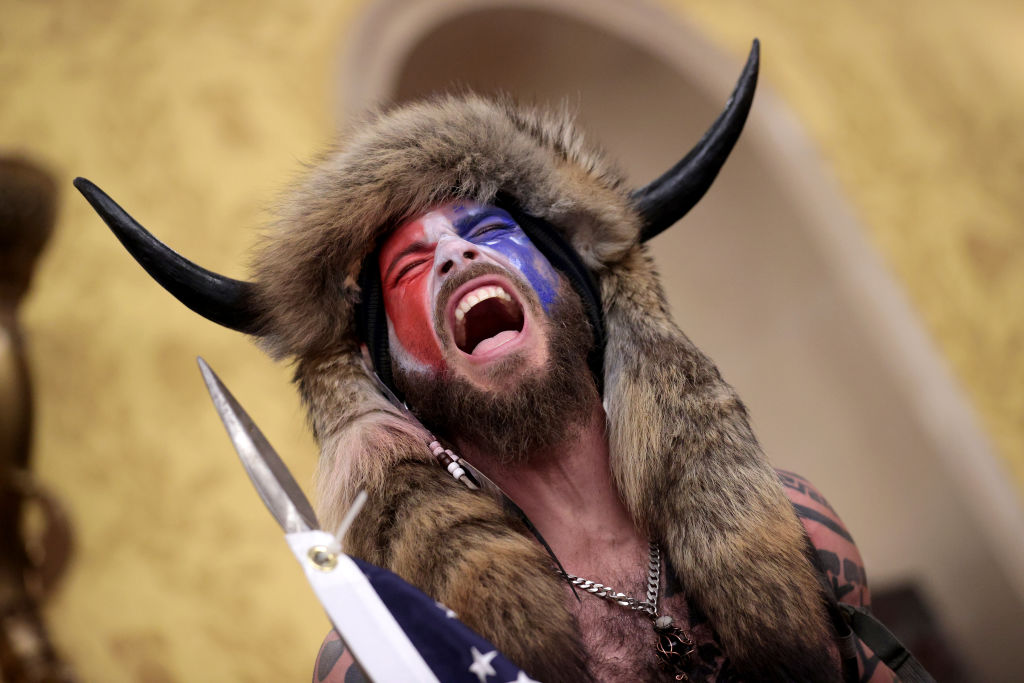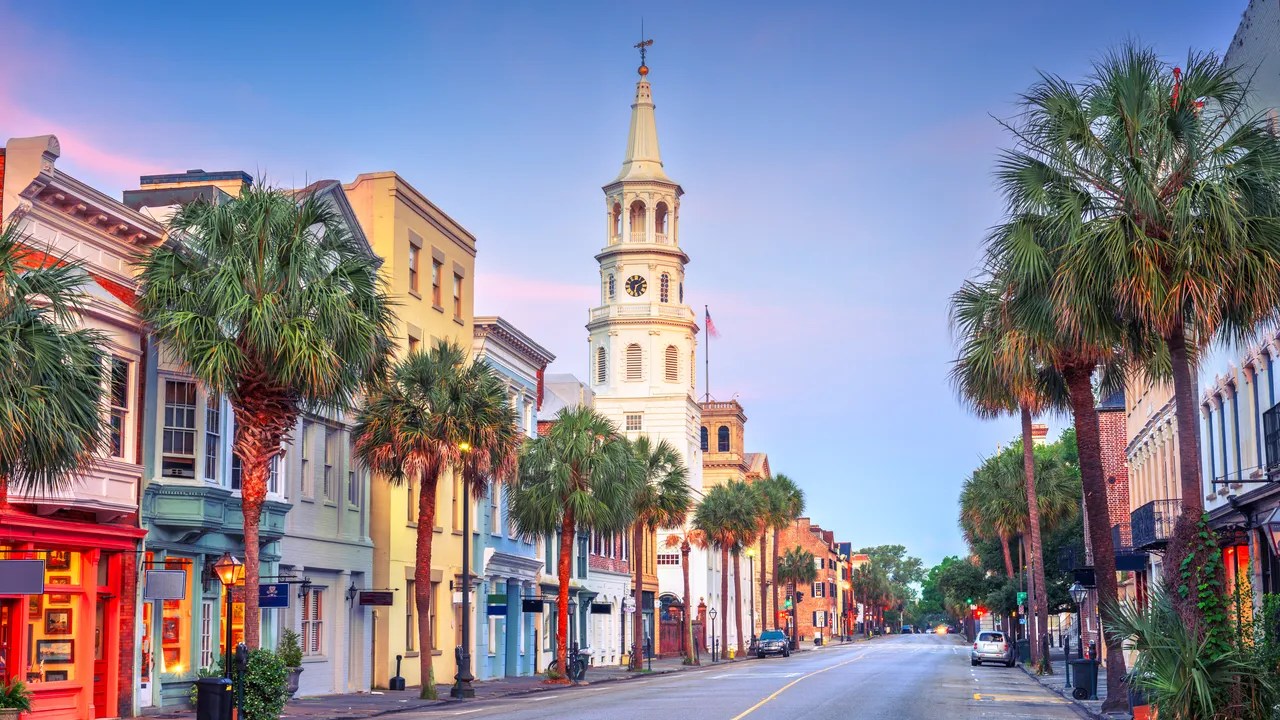Generally, events that we think are significant will be passed over by historians — much in the same manner as how events in our lives that outrage or excite us one day are forgotten by the next. Remember when Beto O’Rourke seemed like an important political figure? Remember when everyone was talking about Tiger King? You see what I mean.
Still, I feel confident in saying that future historians will be attracted like wasps to syrup to the image of a man dressed like a Visigoth standing at the dais in the Senate chamber, having stormed the Capitol Building with hundreds of other fanatical advocates of President Donald Trump. Whatever the political repercussions, which will doubtless be significant, its sheer symbolic power will be enough for it to outlive us.
The moral and political implications of this event will be discussed elsewhere, at great and necessary length. Here, though, I want to focus on something else: aesthetics, symbolism, style.
The images of the rioters fighting with police and storming government buildings are disturbing, yes, but there is also something very goofy, and absurd, and camp about them. As well as the predictable camos and MAGA caps, the rioters wear furs, and novelty face masks, and skateboarding equipment. Their style is self-consciously ramshackle and flamboyant.
This riot is a peculiarly American combination of the storming of the Bastille and Animal House. It inspires a peculiar mix of emotions: as fearful, sad and angry as you might well be, if you claimed not to find the image of MAGAstrix ascending the podium as if he was about to seize Washington DC for Gaul perversely comic, I would question your honesty.
As Matthew Walther wrote in a superb recent article on Trump and camp:
‘”The essence of camp,” [Susan] Sontag tells us, is “love of the unnatural: of artifice and exaggeration.” Trumpian aesthetics [depend] upon absurd juxtapositions, and being in taste so bad that a knowing few are implicitly invited to recognize it as good.’
The rioters are certainly knowing. There is real emotion. There are shouts, and screams, and raised fists. I have no doubt that most of them believe they are legitimately, necessarily protesting a stolen election. But there are also carnivalesque aspects to their crimes. One woman smokes an e-cigarette as she puts her feet up on a grand old desk. One man grins from ear to ear as he steals a lectern. One man appears to take a selfie with a police officer. They know the eyes of the world are upon them — and at least some of them appear to enjoy the attention.
They are putting on a show — some of them quite literally. Baked Alaska, an infamous social media personality who has had more stylistic and ideological makeovers than most of us have posted tweets, and who was recently arrested for macing a bouncer outside a bar, was apparently live-streaming the proceedings. Again, I am sure that most of the protesters are sincere, and that at least some of them have the basic intelligence to have grasped the risks of what they are doing, but others appear to think they are involved in something without real consequences. Violence? Jail time? No! It is all a performance. A stunt. A bit. Drama. Content.
Perhaps I am in no position to judge that impulse. After all, here I am analyzing the performance. Still, the behavior raises questions. First, how did such a madcap bunch get inside the Capitol Building to begin with? As Glenn Greenwald has justifiably asked:
‘How have hundreds of billions upon hundreds of billions of dollars been spent in the name of security since 9/11, along with the deployment of drones and surveillance tech, yet a few hundred protesters can so easily breach the Capitol, just waltzing in and taking it over?’
The kindest possible explanation is incompetence on a grand scale. There was more of the cuckoo than the coup to this whole debacle, and politicians and police officials will have serious questions to answer about what they knew and how they were so ill-prepared.
***
Get a digital subscription to The Spectator.
Try a month free, then just $3.99 a month
***
Another question it raises — and I want to emphasize that this is one of many questions, others of which will be asked elsewhere — is how the borders of fantasy and reality have blurred. People online are often accused of ‘LARPing’ (or ‘live-action role-playing’): portraying a character in an imagined situation rather than being themselves and dealing with the real world. Some of these guys were obviously LARPing to some extent. You don’t take a big wooden spear to a protest if you have an earnest plan to storm Capitol Hill. Yet inarguably they have stormed Capitol Hill. Camp and ironic aspects of their performance do not negate that fact.
As Baudrillard said, ‘Art is everywhere because artifice is at the very heart of reality.’ And vice versa. It is hard, and sometimes impossible, to distinguish the actual from the theatrical — except perhaps when it comes to lifeless bodies.

























